Should you get a projector or a TV?
Torn between a projector and a TV? We're here to help!
A big-screen TV used to be a status symbol. But these days you can get a good 65-inches of 4K display for under a thousand dollars. That's not to say that big-screen TVs aren't cool — they most certainly are. And that's not to say that 65 inches and up isn't big — you can definitely go bigger.
But maybe a flat-screen TV isn't actually the right choice for you. Maybe it's time to consider a projector.
There are pros and cons to each, of course. Here's how I'd look at making your decision.
Why a projector instead of a TV?
I'm a huge fan of projectors. For one, they're just awesome. (I don't need another reason.) For another, you get a whole lot of options when it comes to size. Your TV won't ever get bigger — at least not without buying another one. And then there's the whole thing about operating systems. You can take 'em or leave 'em. I'll leave 'em.
Sheer screen size
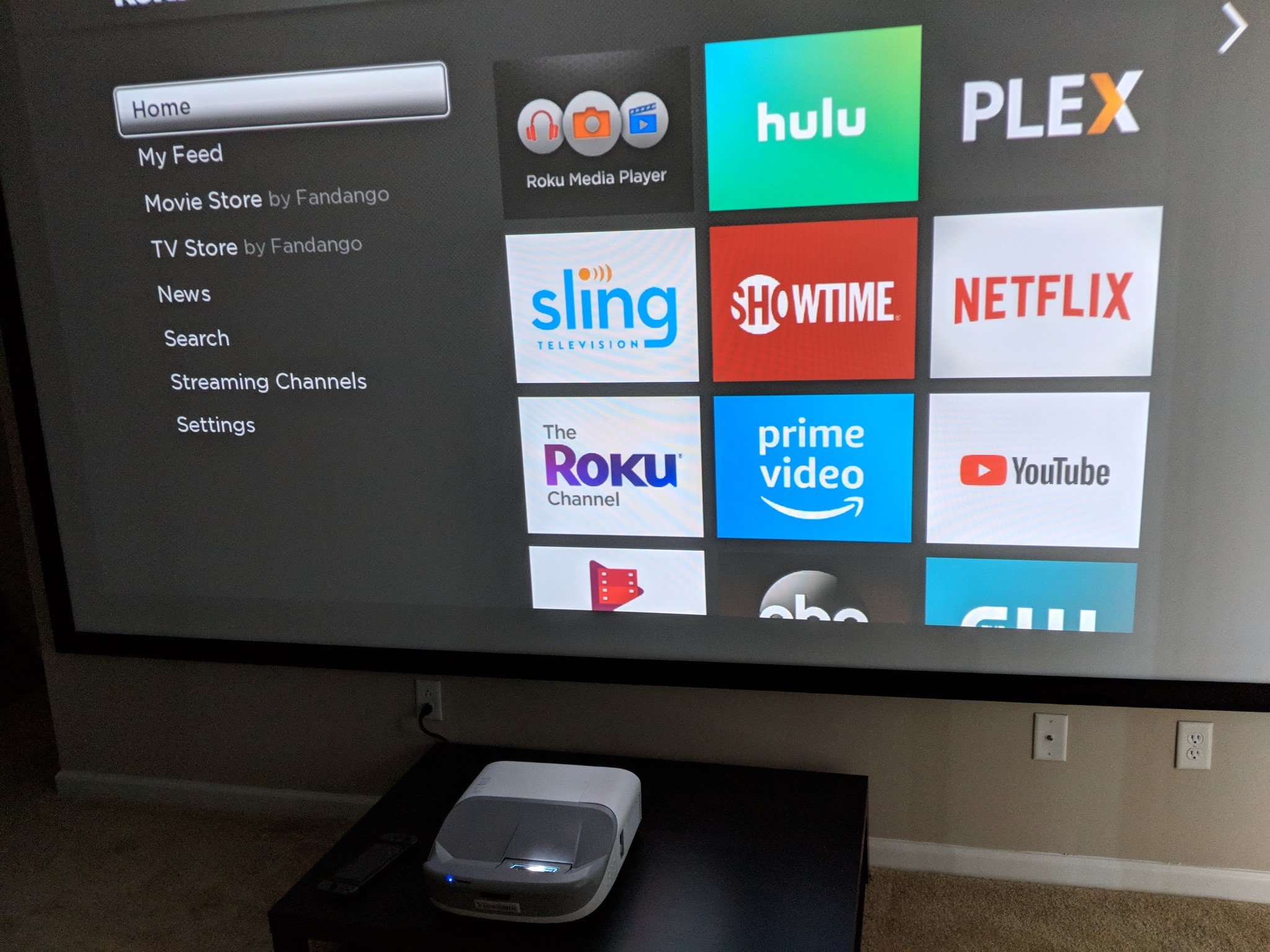
If your goal is to get the largest screen size for your space, you'll want to look at a projector. A 75-inch TV goes for between $1,400 and $3,800 , and if you really want to go crazy Sony has a 100-inch TV for $60,000.
Is your jaw picked up from the floor yet? Great! Projectors can get expensive, too — especially if you want something that handles 4K, HDR and the other new whiz-bang features in the home media world. Even then, you're able to get a much bigger picture of your money — Optoma's UHD50 costs $1,400 and can display a 4K image up to 140-inches diagonally — a larger image will result in a lower resolution. If you want something that sits right next to the projector screen, Dell's S718QL ultra-short-throw is available for $6,000 and can produce a 4K image up to 130-inches diagonally.
The latest updates, reviews and unmissable series to watch and more!
Dumb displays
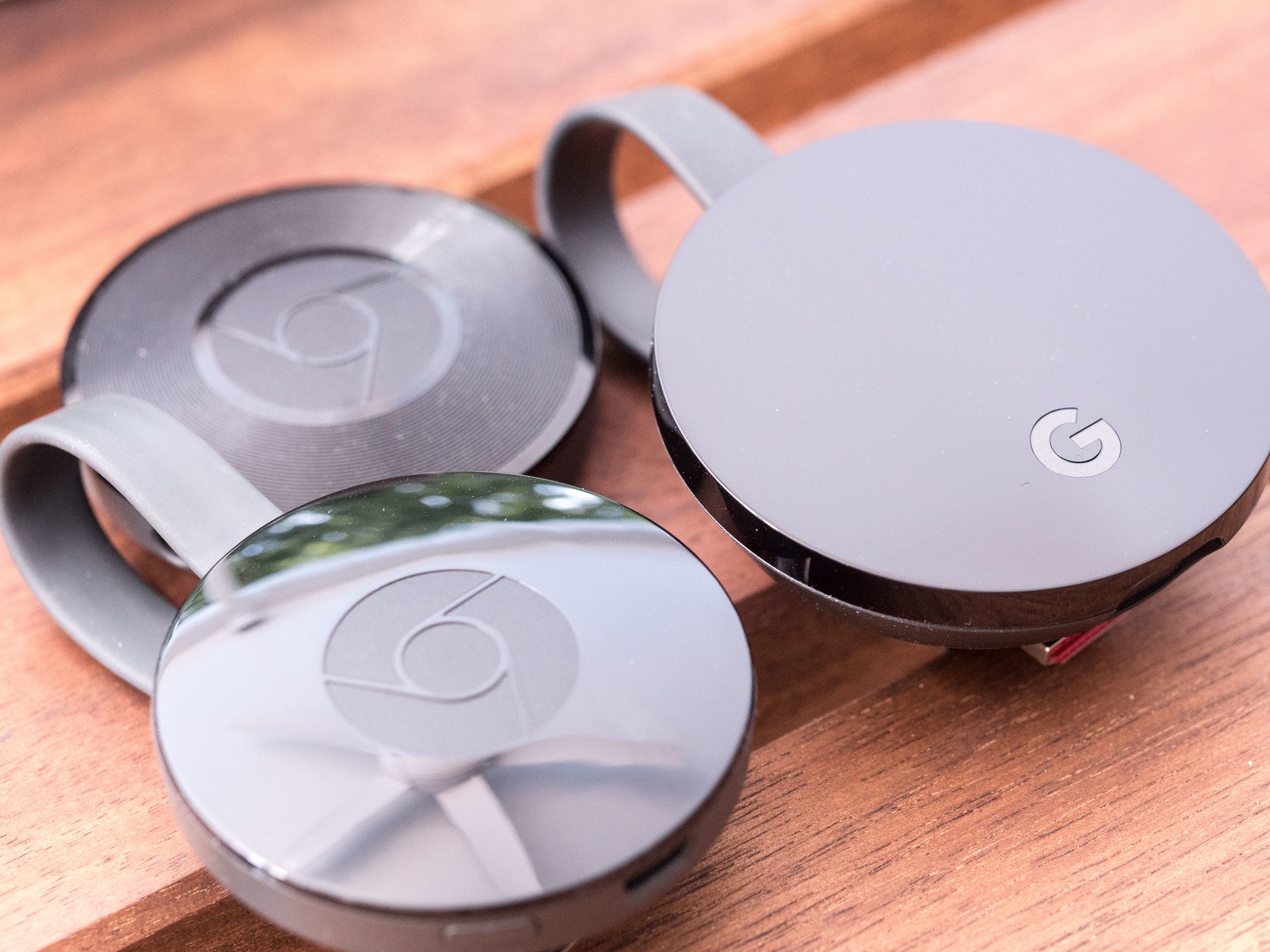
It's increasingly rare to find a TV without a smart operating system. This can be great at first — you get easy access to Hulu and Netflix without needing to have an additional dongle. But there are always edge cases. Almost everyone I know with a smart TV still has a streaming stick because their favorite streaming service isn't available on their TV's OS — or navigating the TV's smart interface is slow as molasses. I already own an Xbox One X and a Chromecast , so a TV's smart OS isn't going to do anything I can't already do with that Xbox.
Portability
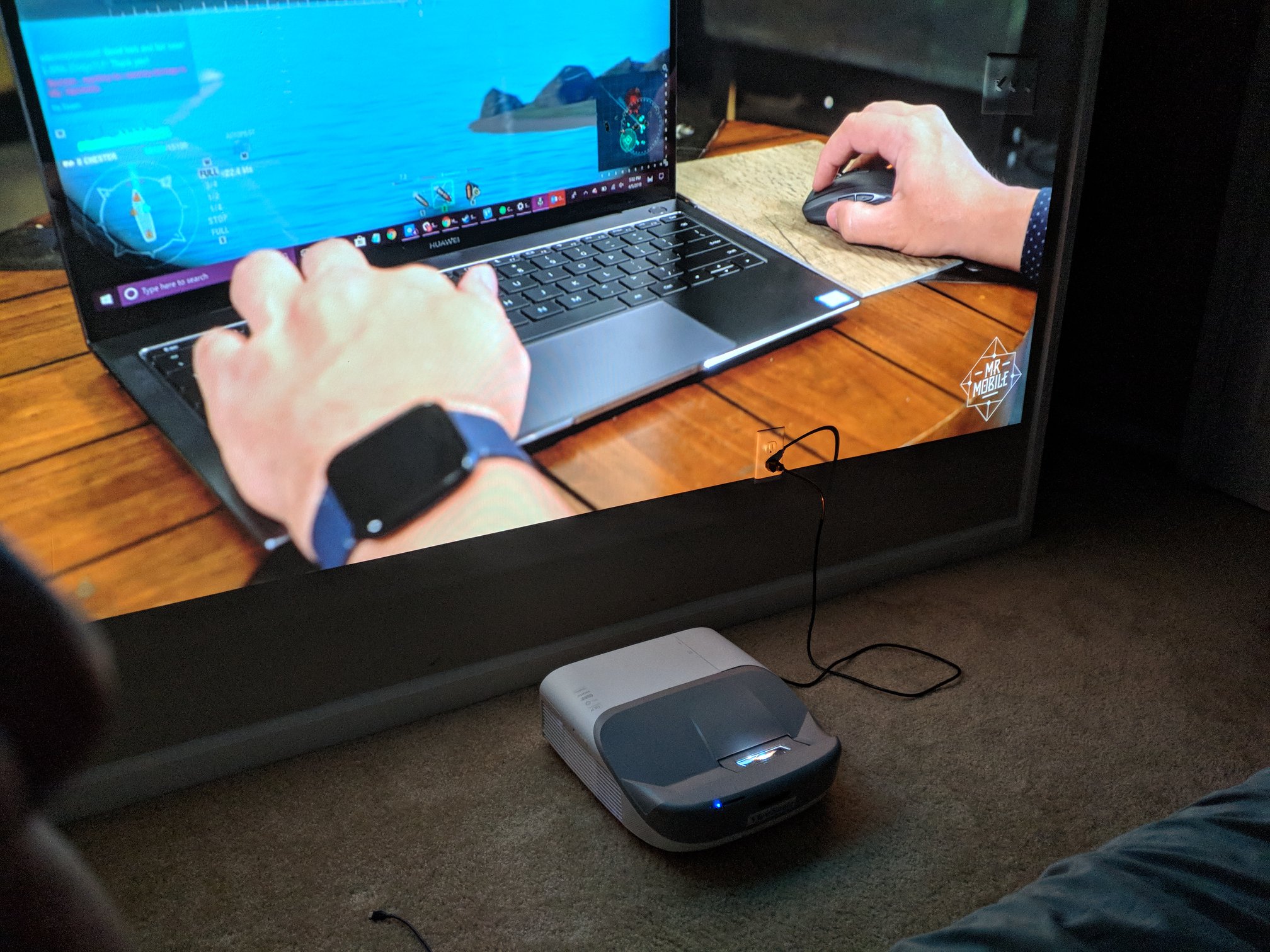
One of my favorite things to do is move my Viewsonic PX800HD from my living room to my bedroom for a long, big-screened movie session. The projector weighs all of 13 pounds and uses a standard power cable, so getting it moved and set up in my bedroom takes all of two minutes. Then, I just Cast something from my phone and I'm in a world of pure imagination.
That's not as likely with a TV. Because of how heavy and large TVs are, it's much more likely for someone to have a second TV in their bedroom. There's nothing wrong with this, but there's something cool about just moving your projector from one room to the other, and getting a giant screen in a different space. This also makes it easy to take your projector over to a friend's house for game day.
Reasons to consider a TV over a projector
Image quality
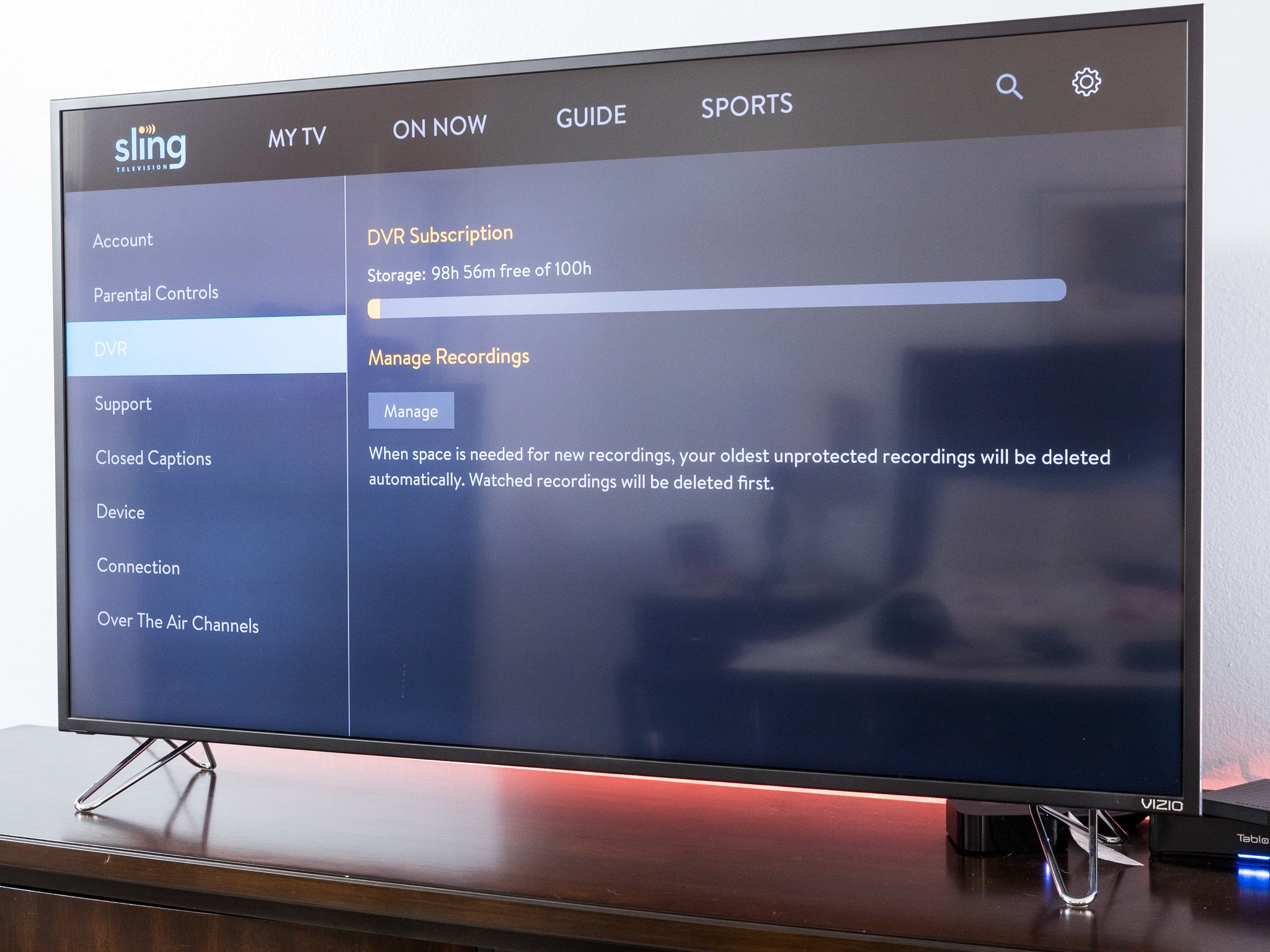
If you value raw pixel density, a TV is going to be a better use of your money than a projector. TCL's new TVs offer 4K resolution, HDR-10 support and deep contrast for as low as $650. That Optoma UHD50 at $1,400 will display a much larger image, but as good of a value as that is, it's still more than twice the cost. That's not even factoring in the cost of a screen, a mount, an HDMI switch and other accessories that will be needed. A 1080p projector starts around $500, but these aren't as sharp or vibrant as TVs in the same range.
Space
If you have a giant wall for a projector screen, great! But if not — or if you have other stuff on that wall — a TV is simply a better option. A projector will display a smaller image just by being closer to the wall or screen, but there's no sense in going to all the trouble of mounting and setting up a projector when you could just unbox a TV and put that on a stand.
Smart features
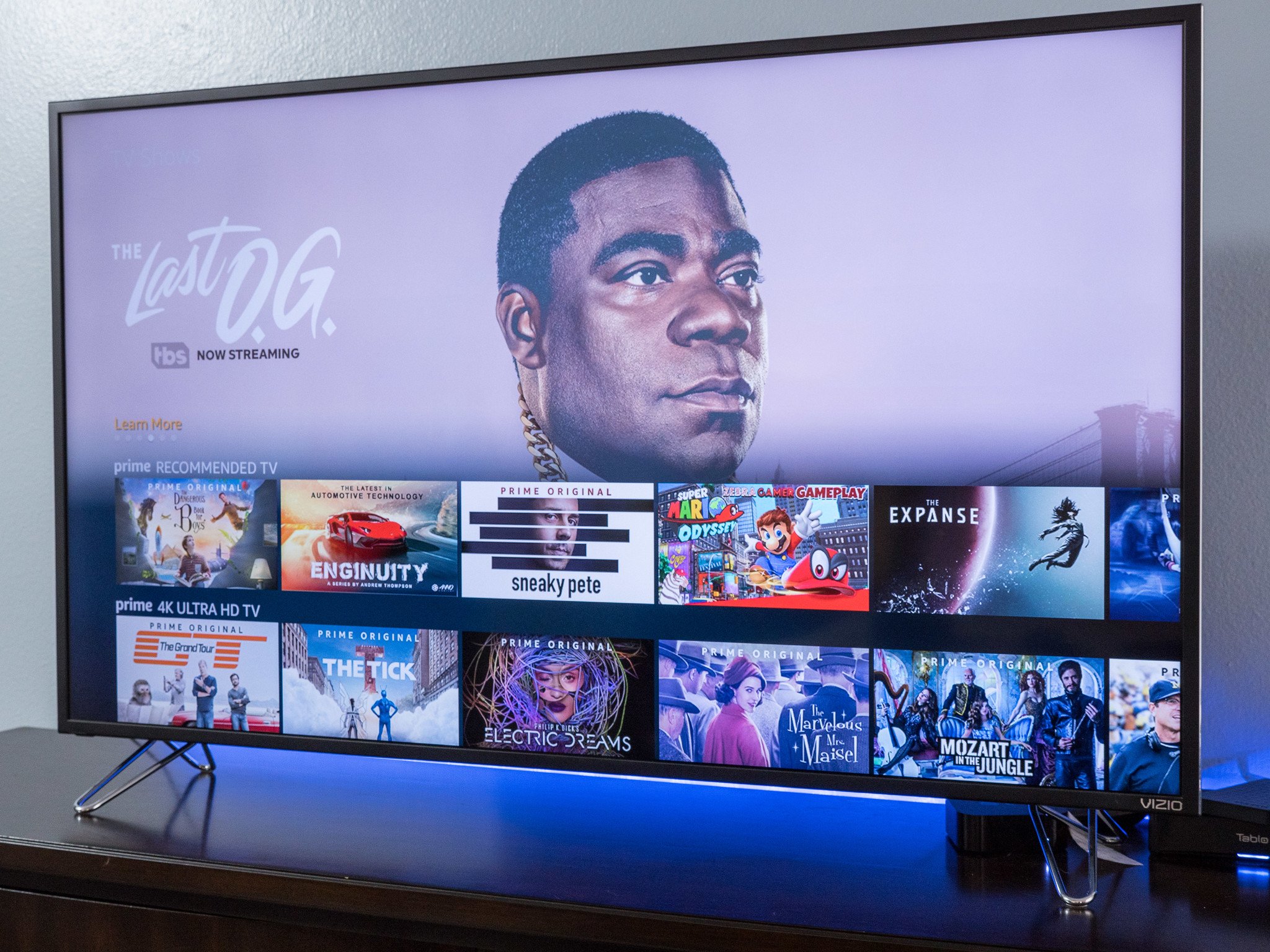
If you like the fact that you can just turn on TV and immediately launch your favorite streaming service, a projector will likely leave you disappointed. Most projectors are marketed towards businesses and home-theater enthusiasts who don't want these smart features. LG has a few projectors with their webOS smart platform and integrated support for over-the-air antennas , but you'll have more options for smart platforms if you're shopping for a proper TV.
Cost
We touched on this before, but it's worth its own paragraph. A projector on its own is going to be at least $500. But it's only part of the equation. You may be able to just project onto your wall, but you'll likely need a screen. This can range from a couple hundred dollars to almost a thousand, depending on how big of a screen you want. As bad as a TV's integrated speakers are, projector speakers are even worse, so budget some money for speakers. You'll also need a mount, a shelf or a stand, adding another $30. It takes a good bit of money for your first projector setup, and if you're not after the absolute biggest screen size it'd be much cheaper to just get a TV.
What say you?
Do you prefer a bigger screen, or more pixels? What about a dumb display vs. integrated smarts? Let us know in the comments!

